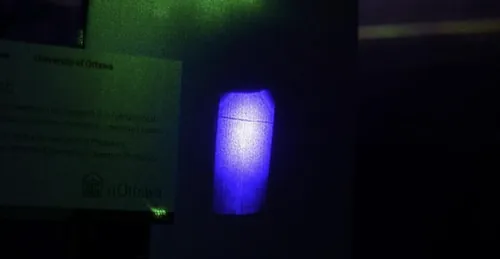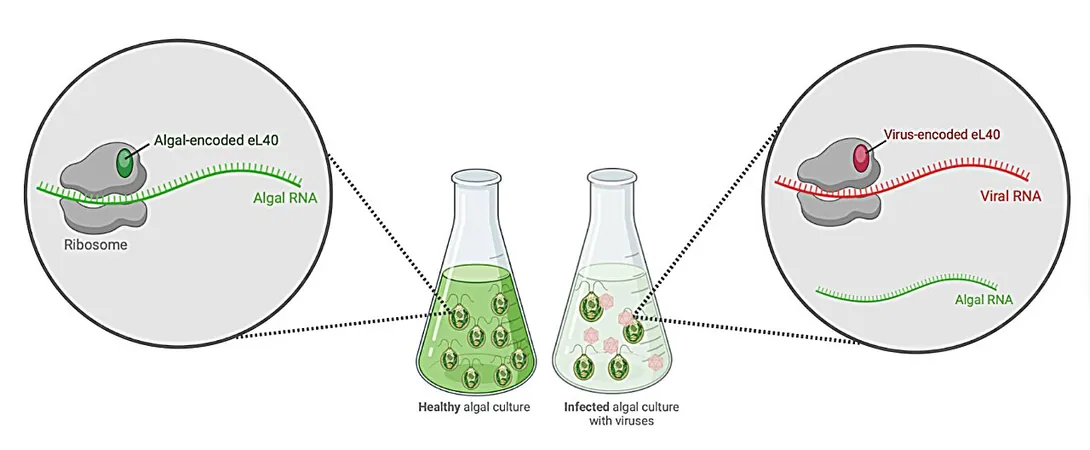
Ontario’s Game-Changing Investments: Smart Salt Trucks and Waterborne Disease Solutions Unveiled!
2024-12-18
Author: Charlotte
In a bold move to enhance public safety and environmental protection, the Ontario government has allocated funding for two groundbreaking research initiatives at the University of Guelph (U of G). These projects focus on revolutionizing winter road maintenance through innovative "smart" salt truck technology and improving the management of waterborne diseases—both crucial for the province's infrastructure and public health.
This new funding is part of a larger investment exceeding $92 million committed by Ontario to support various research projects across universities, colleges, and research bodies throughout the province. Dr. Shayan Sharif, interim vice-president of research and innovation at U of G, expressed gratitude to the government, underscoring how this support will facilitate the development of sustainable solutions that bolster safety and health in Ontario communities.
Nolan Quinn, the Minister of Colleges and Universities, emphasized that investing in research is critical for the future growth of the province, stating that “these essential investments will allow Ontario’s researchers to make discoveries that not only drive major sectors forward but also create high-quality jobs and improve lives.”
Transforming Winter Road Safety with Smart Salt Trucks
At the forefront of this initiative is Dr. Bahram Gharabaghi, a noted professor in the School of Engineering at U of G. He aims to pioneer an advanced generation of “smart” salt trucks designed to elevate road safety while minimizing environmental impacts linked to winter road treatment.
Currently, Ontario's salt application is primarily manual, leading to inconsistencies in how salt is deployed. This hands-on approach can result in hazardous road conditions when insufficient salt is dispensed and environmental harm due to overapplication near sensitive freshwater sources. Gharabaghi and his team—comprising Drs. Amir Aliabadi and Ed McBean—are developing sophisticated mobile technology that incorporates real-time monitoring of road, weather, and surface conditions. Their innovative system allows for precise salt application based on data collected from road sensors, GPS, and weather forecasts, ensuring optimal rates that protect vital ecological areas from contamination.
With these advancements, winter road maintenance across Ontario could undergo a remarkable transformation, making roadways considerably safer while conserving natural resources.
Cutting-Edge Solutions for Waterborne Disease Management
In another key project, Dr. David McCarthy, a leading figure in the School of Environmental Sciences and an expert in waterborne pathogens, is set to enhance public health through innovative pathogen detection technologies. Current methods of identifying and managing waterborne diseases are often hampered by inadequate sampling and overly complex testing processes, leading to potential public health risks and costly errors.
McCarthy's team is focused on creating integrated solutions that feature near real-time pathogen detection and tracking systems, enabling healthcare organizations to respond to risks promptly and efficiently. By developing cost-effective and environmentally sound water treatment methods, the project aims to provide a robust framework for managing waterborne diseases in various contexts including agricultural, recreational, and drinking water systems.
Both projects represent a significant leap forward for Ontario, reflecting a strong commitment to leveraging research for practical solutions that improve health and safety standards across the province. As these initiatives advance, they hold the promise not only to protect the environment and public health but also to establish Ontario as a leader in innovative research and sustainable practices.
Stay tuned as we continue to report on these exciting developments that could reshape the future of Ontario's infrastructure and health management!









 Brasil (PT)
Brasil (PT)
 Canada (EN)
Canada (EN)
 Chile (ES)
Chile (ES)
 España (ES)
España (ES)
 France (FR)
France (FR)
 Hong Kong (EN)
Hong Kong (EN)
 Italia (IT)
Italia (IT)
 日本 (JA)
日本 (JA)
 Magyarország (HU)
Magyarország (HU)
 Norge (NO)
Norge (NO)
 Polska (PL)
Polska (PL)
 Schweiz (DE)
Schweiz (DE)
 Singapore (EN)
Singapore (EN)
 Sverige (SV)
Sverige (SV)
 Suomi (FI)
Suomi (FI)
 Türkiye (TR)
Türkiye (TR)